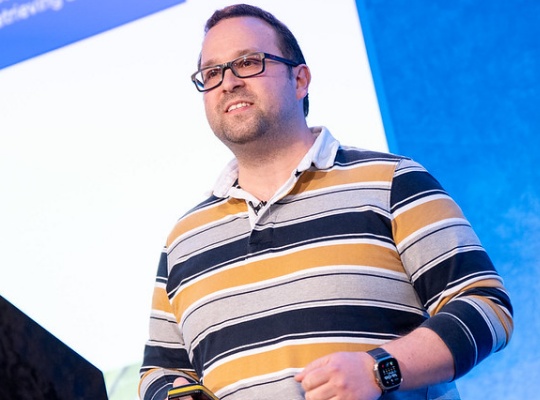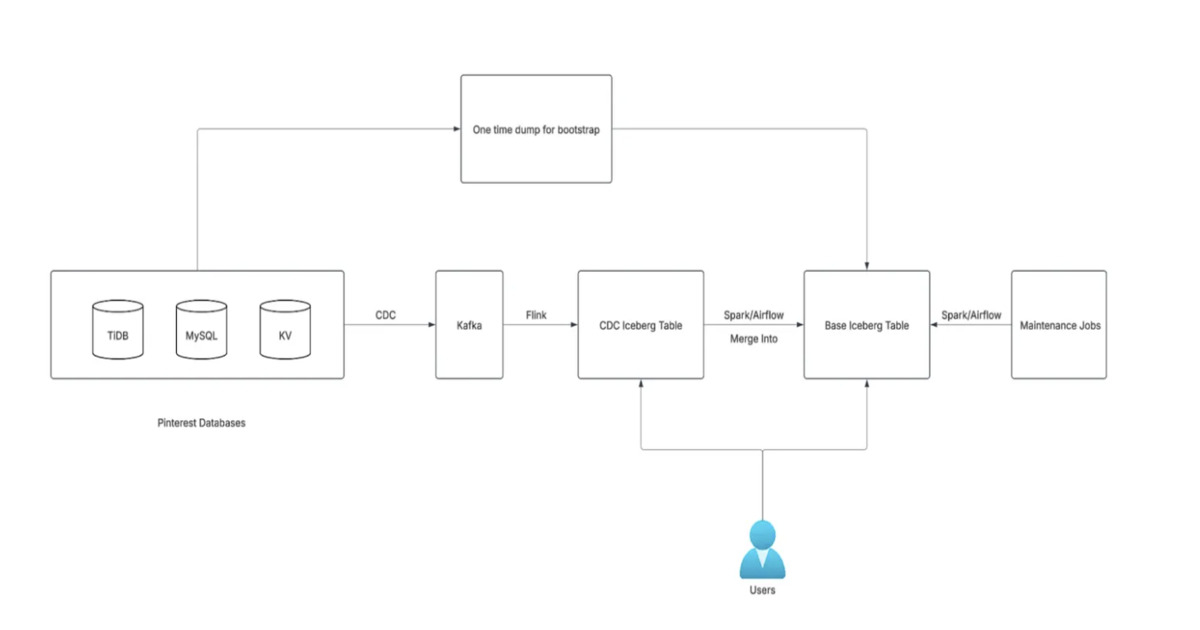Codetown
Codetown ::: a software developer's community
Swampcast features Tim Westergren, Pandora CEO
Join Michael Levin in this Swampcast interview with Tim Westergren, Pandora CEO. Click here to listen. Photo credit: Gala
In 2007, Tim started touring the USA giving presentations about a new music service on the web called Pandora. I met Tim in Orlando. There's quite a bit of background about Pandora that Tim describes in this interview. He deferred to his CTO, Tom Conrad when I asked him about technical details. Tom and I did a Swampcast interview shortly after this one.
From Wikipedia:
"Westergren was born in 1965 in Minneapolis. He attended boarding school, Cranbrook Kingswood, during his high school years. He graduated from Stanford University with a B.A. in political science.[2] Following his graduation, Westergren spent twenty years working as a record producer and composer (working as a nanny in between jobs), devoting the majority of his time to emerging artists and independent labels.
In 1999 he started Pandora Media along with two co-founders: Will Glaser and Jon Kraft. The Oakland, Calif., company went public in 2011,[3] reporting $138 million in revenue that fiscal year.
As an early project, Westergren and Glaser created the Music Genome Project, a mathematical algorithm to organize music.[1] As the company's chief strategy officer, Westergren spends the majority of his time traveling the nation and gathering feedback from Pandora Radio users. In 2010 he was listed by Time magazine as one among the 100 most influential people in the world.[4]
In April 2016, Pandora Media announced that Tim Westergren would replace Brian McAndrews as CEO. He had previously served as CEO and president from May 2002 to July 2004.[5]
In June 2017, he announced that he is going to step down as CEO.[6]"
Notes
Welcome to Codetown!
 Codetown is a social network. It's got blogs, forums, groups, personal pages and more! You might think of Codetown as a funky camper van with lots of compartments for your stuff and a great multimedia system, too! Best of all, Codetown has room for all of your friends.
Codetown is a social network. It's got blogs, forums, groups, personal pages and more! You might think of Codetown as a funky camper van with lots of compartments for your stuff and a great multimedia system, too! Best of all, Codetown has room for all of your friends.
Created by Michael Levin Dec 18, 2008 at 6:56pm. Last updated by Michael Levin May 4, 2018.
Looking for Jobs or Staff?
Check out the Codetown Jobs group.
InfoQ Reading List
Vercel Releases React Best Practices Skill with 40+ Performance Rules for AI Agents

Vercel has launched "react-best-practices," an open-source repository featuring 40+ performance optimization rules for React and Next.js apps. Tailored for AI coding agents yet valuable for developers, it categorizes rules based on impact, assisting in enhancing performance, bundle size, and architectural decisions.
By Daniel CurtisKubernetes Introduces Node Readiness Controller to Improve Pod Scheduling Reliability

The Kubernetes project recently announced a new core controller called the Node Readiness Controller, designed to enhance scheduling reliability and cluster health by making the API server’s view of node readiness more accurate.
By Craig RisiPresentation: Platforms for Secure API Connectivity With Architecture as Code

Jim Gough discusses the transition from accidental architect to API program leader, explaining how to manage the complexity of secure API connectivity. He shares the Common Architecture Language Model (CALM), a framework designed to bridge the developer-security gap. By leveraging architecture patterns, engineering leaders can move from six-month review cycles to two-hour automated deployments.
By Jim GoughMicrosoft Open Sources Evals for Agent Interop Starter Kit to Benchmark Enterprise AI Agents

Microsoft's Evals for Agent Interop is an open-source starter kit that enables developers to evaluate AI agents in realistic work scenarios. It features curated scenarios, datasets, and an evaluation harness to assess agent performance across tools like email and calendars.
By Edin KapićPinterest’s CDC-Powered Ingestion Slashes Database Latency from 24 Hours to 15 Minutes

Pinterest launched a next-generation CDC-based database ingestion framework using Kafka, Flink, Spark, and Iceberg. The system reduces data availability latency from 24+ hours to 15 minutes, processes only changed records, supports incremental updates and deletions, and scales to petabyte-level data across thousands of pipelines, optimizing cost and efficiency.
By Leela Kumili
© 2026 Created by Michael Levin.
Powered by
![]()
You need to be a member of Codetown to add comments!
Join Codetown